Epitalon
- CAS NO.:307297-39-8
- Empirical Formula: C14H22N4O9
- Molecular Weight: 390.35
- MDL number: MFCD04034655
- EINECS: 211-519-9
- Update Date: 2025-12-27 15:38:00
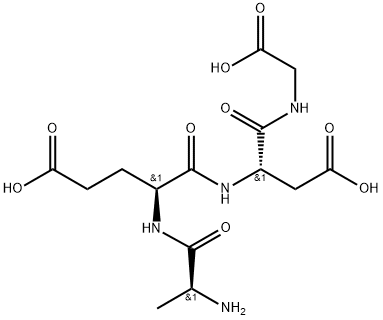
What is Epitalon?
Description
Epitalon (also known as Epithalon or Epithalone) is the synthetic version of the polypeptide Epithalamin which is naturally produced in the pineal gland. It was synthesized by Vladimir Khavinson, a Russian professor and gerontologist, whose research focused on the development of peptide preparations used to restore function in various organs in order to prevent and reverse the aging process. He is currently the Director of the Saint Petersburg Institute of Bioregulation and Gerontology.
Epitalon is considered the "fountain of youth" peptide. It is a tetra-peptide, which means that it is composed of four amino acid chains. The peptide is used to regulate the cell cycle during telomerase activity. Telomerase, also called telomere terminal transferase, is an enzyme made of protein and RNA subunits that elongates chromosomes. When telomerase activity is not present (when we age), our cells age. Our telomeres get shorter and begin to die off. If telomerase is activated in our cells, our telomeres lengthen, the cell continues to grow and divide, delaying the aging process. (UT Southwestern Medical Lab)
https://www.amisantabarbara.com/epitalon
History
Epitalon was discovered and developed by the Russian scientist and gerontologist Professor, Doctor of Medical sciences Vladimir Khavinson of St. Petersburg Institute of Bioregulation and Gerontology, whose research is focused on the development of peptide preparations used to restore function in various organs in order to prevent and reverse the aging process. Epitalon was identified as active component of a bovine pineal gland extract (known as Epithalamin).
Low-molecular peptides isolated from pineal gland and Epithalamin of animals were studied in different biologic models. Most all performed scientific studies and clinical trials of Epitalon and Epithalamin have been conducted just by already mentioned St. Petersburg Institute of Bioregulation and Gerontology in Russia, primarily overseen by Professor Vladimir Khavinson, who has been involved in this research already for over 35 years, and has merit not only in the discovery of epitalon, but also in its highly advanced scientific and clinical review. Throughout this time, Epitalon has been extensively investigated in animal and human clinical trials and today is one of the best scientifically investigated peptides.
https://beringomega.org
The Uses of Epitalon
Epitalon is a synthetic peptide made of four amino acids (alanine, glutamic acid, aspartic acid, and glycine), that is based on a natural peptide called epithalamin extracted from the pineal gland. It was synthesized by Vladimir Khavinson, a Russian professor and gerontologist, whose research focused on the development of peptide preparations used to restore function in various organs in order to prevent and reverse the aging process. He is currently the Director of the Saint Petersburg Institute of Bioregulation and Gerontology.
Benefits
As a result of Epitalon’s effect on telomerase production, the benefits are unique and far-reaching and include:
Increases lifespan by lengthening telomeres in human cells|
Promotes deeper sleep
Delays and prevents of age-related diseases such as cancer, heart disease, and dementia
Acts as an antioxidant by reducing lipid oxidation and ROS (Reactive oxygen species) along with normalizing T cell function
Improves skin health and appearance
Heals injured and deteriorating muscle cells
Restores and normalizes melatonin levels in those who have lost some pineal function due to aging
Can increase resistance to emotional stress
Biological Functions
Epitalon was discovered by the Russian scientist Professor Vladimir Khavinson. He researched this peptide of over 35 years in both animal and human clinical trials. The results were astounding. For the first time ever, human clinical trials proved beyond doubt that the substance consisted of powerful life extension and anti-aging possibilities.
Benefits of Epitalon:
As a result of Epitalon's effect on telomerase production, the benefits are unique and far-reaching and include:
An increase of human lifespan by lengthening telomeres in human cells
Promotion of deeper sleep
Delay and prevention of age-related diseases such as cancer, heart disease, and dementia
Acts as an anti-oxidant by reducing lipid oxidation and ROS (Reactive oxygen species) along with normalizing T cell function.
Improvement of skin health and appearance
Healing of injured and deteriorating muscle cells
Restores and normalizes melatonin levels in older people who have lost some pineal function due to aging
Can increases resistance to emotional stress
Mechanism of action
Telomerase activator peptide Epitalon directly stimulates cells in the body to produce a telomerase enzyme, that renew and extends telomeres at the ends of chromosomes. This ultimately leads to a slowing of the aging of cell populations, and the aging of cell populations correlate with the overall physical aging of an organism. Clinical studies conducted with Epitalon have shown that administration of Epitalon to mammals has not only reversed the symptoms of aging but also reversed many age-related diseases. Epitalon has also been shown to help restore and normalize melatonin production by the pineal gland, as well as restoring the normal circadian rhythm of cortisol production, both of which result in better sleep at night.
Side Effects
Epithalon side effects are very uncommon.
Side effects associated with epithalon may include the following:
Diarrhea
Difficulty sleeping
Fatigue
Flu-like symptoms
Headache
Irregular heartbeat
Joint pain
Nausea
Clinical claims and research
Tetrapeptide Epitalon® (Ala–Glu–Asp–Gly) was designed on the basis of Epithalamin amino acid analysis and synthesized at the Laboratory of Peptide Chemistry of the St. Petersburg Institute of Bioregulation and Gerontology.The geroprotective activity of Epitalon was studied in 3 strains of D. melanogaster. Epitalon increased the life-span of imagoes significantly by 11–16% when applied at unprecedentedly low concentrations-from 0.001*10-6 to 5*10-6 wt% of the culture medium. The effective concentrations of Epitalon were 16,000-80,000,000 times lower than those of melatonin. In another experiment, the mean life-span of female VES and male NA-flies increased under the influence of Epitalon by 26%. In NA- females the mean life-span grew by 35% and in NA- males, by 29%.
In our recent study the geroprotective effect of long-term Epitalon administration in female CBA mice was demonstrated.54 The number of mice that survived the age of 24 months increased 4 times under Epitalon influence as compared to the controls treated with saline. The bioregulator slowed down aging of the reproductive function, decreased physical activity, inhibited free radical processes, and decreased total spontaneous tumor incidence 1.7 times in female CBA mice.54 Epitalon inhibited mammary carcinogenesis and metastasis in HER-2/neu transgenic mice.55 The expression of HER-2/neu mRNA in the mammary tumors of HER-2/neu transgenic mice treated with Epitalon reduced 3.7-fold in comparison with the control animals. The administration of Epitalon inhibited colon and small intestine carcinogenesis induced by 1,2-dimethylhydrazine in rats.
Aging Interventions and Therapies || Pineal Peptides as Modulators of Aging Rattan, Suresh I S
Properties of Epitalon
| Boiling point: | 959.8±65.0 °C(Predicted) |
| Density | 1.466±0.06 g/cm3(Predicted) |
| storage temp. | Store at -20°C |
| solubility | DMSO: 250 mg/mL (495.67 mM) |
| pka | 3.16±0.10(Predicted) |
| form | Solid |
| color | White to off-white |
Safety information for Epitalon
Computed Descriptors for Epitalon
| InChIKey | HGHOBRRUMWJWCU-VTCOHLDGNA-N |
| SMILES | [C@H](CC(=O)O)(C(=O)NCC(=O)O)NC(=O)[C@H](CCC(=O)O)NC(=O)[C@@H](N)C |&1:0,15,24,r| |
New Products
4,4-Difluoropiperidine hydrochloride tert-butyl 9-methoxy-3-azaspiro[5.5]undecane-3-carboxylate Indole Methyl Resin N-Isopropylurea N,N-Dicyclohexylcarbodiimide(DCC) MELDRUMS ACID 5-METHYLISOXAZOLE-4-CARBOXYLIC ACID Magnessium Bis glycinate Zinc ascorbate 1-bromo-2-butyne 2-acetamidophenol 9(10H)-anthracenone Erythrosin B, 4-Piperidinopiperidine 2-((4-morpholinophenylamino) (methylthio) methylene) malononitrile 2,4-dihydroxybenzaldehyde 3-(4-morpholinophenylamino)-5-amino-1H-pyrazole-4-carbonitrile Methyl 2-methylquinoline-6-carboxylate 2,6-dichloro-4-nitropyridine 4-Bromo-2-chlorobenzonitrile 2-(benzylamino)acetic acid hydrochloride 4-(tert-Butoxycarbonylamino)but- 2-ynoic acid 3,4-dihydro-2H-benzo[b][1,4]dioxepine 1-Phenyl-1-cycloprppanecarboxylicacidRelated products of tetrahydrofuran
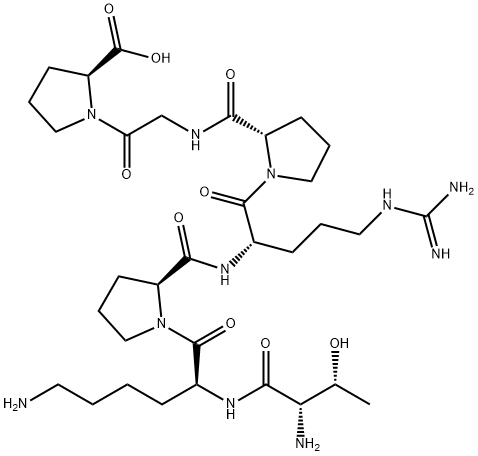

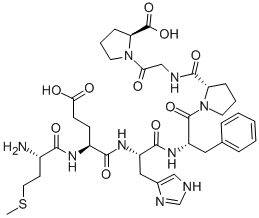
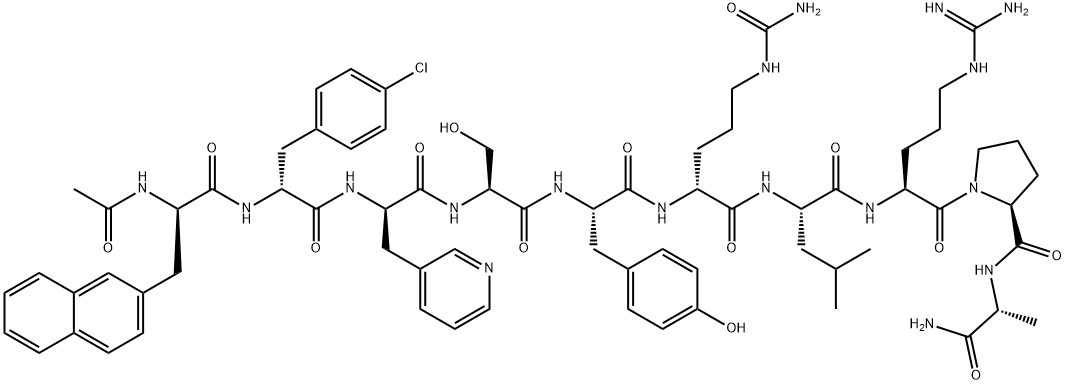
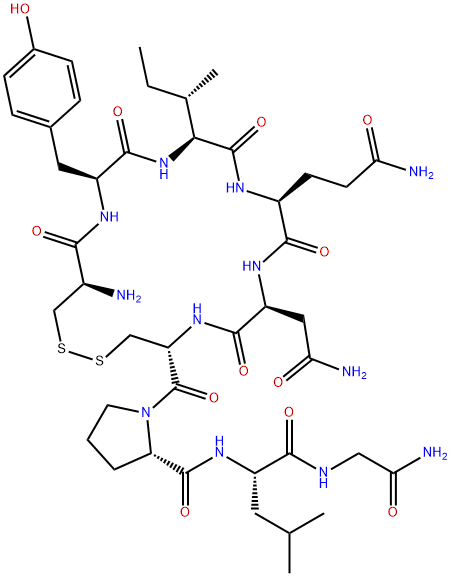
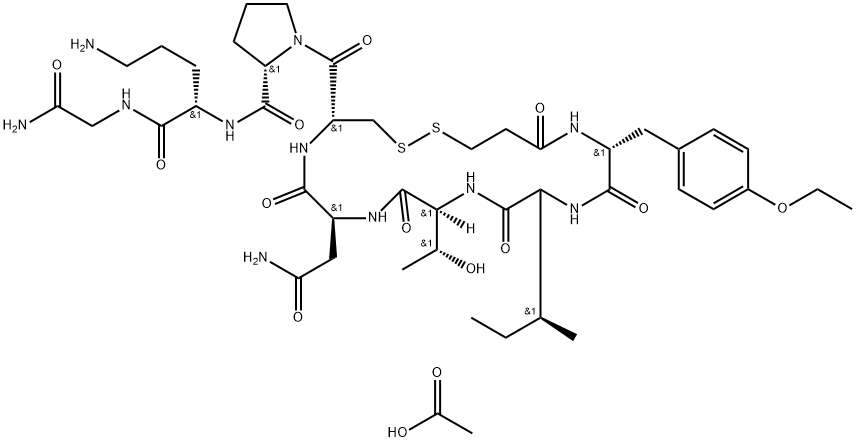

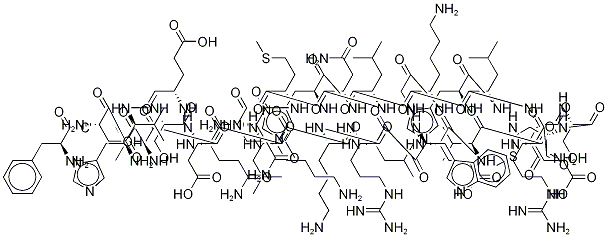
You may like
-
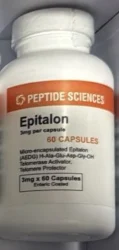 Epithalone 3 mg Oral peptides, CAPSULES, Packaging Type: BottleView Details
Epithalone 3 mg Oral peptides, CAPSULES, Packaging Type: BottleView Details
307297-39-8 -
 3-(4-amino-1-oxoisoindolin-2-yl)-1-methylpiperidine-2,6-dione 98%View Details
3-(4-amino-1-oxoisoindolin-2-yl)-1-methylpiperidine-2,6-dione 98%View Details -
 614-19-7 98%View Details
614-19-7 98%View Details
614-19-7 -
 3112-85-4 Methyl phenyl sulfone 98%View Details
3112-85-4 Methyl phenyl sulfone 98%View Details
3112-85-4 -
 20677-73-0 (2,2-diethoxyethyl)methylamine 98%View Details
20677-73-0 (2,2-diethoxyethyl)methylamine 98%View Details
20677-73-0 -
 3-(4-(hydroxyamino)-1-oxoisoindolin-2-yl)piperidine-2,6-dione 98%View Details
3-(4-(hydroxyamino)-1-oxoisoindolin-2-yl)piperidine-2,6-dione 98%View Details -
 57381-49-4 2-bromo-4-chlorobenzonitrile 98%View Details
57381-49-4 2-bromo-4-chlorobenzonitrile 98%View Details
57381-49-4 -
 4,6-dichloropyrimidine-5-carbaldehyde 98%View Details
4,6-dichloropyrimidine-5-carbaldehyde 98%View Details
5305-40-8
